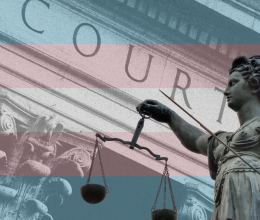Over the past two to three years, COVID has wreaked havoc on the education system. There has been little to no consistency with students being in and out of school, missing key learning opportunities and more. The pandemic shed light on more flexible options for students and highlighted a variety of digital and socioeconomic barriers to schooling. These issues have inspired legislators to churn out a myriad of bills to address growing concerns and unrest from parents, teachers, and students. According to Cleveland.com, 125 bills regarding education were introduced in the last year. With so many bills to track, the legislature slipped in a few major bills that would restrict students’ rights and their learning. Let’s examine a few of the more notorious bills: HB 322, HB 327, and the recently introduced HB 616.
HB 322 and HB 327 are the “anti-CRT” bills that have been in the House for quite some time but have stalled in recent weeks. HB 322, introduced in October of 2019, was absorbed into HB 327, introduced in June of 2021. HB 327 is much more specific and detailed on how it would restrict and prohibit school districts, community schools, STEM schools, and state agencies from teaching, advocating, or promoting divisive concepts such as racism and sexism and the history of these concepts and actions. Legislators are attempting to connect these concepts to Critical Race Theory and ban the teaching of this theoretical lens to children and young adults in an attempt to prevent critical thought and analysis by students. This bill has been amended multiple times and essentially has been curtailed by multiple efforts from the public, including the ACLU of Ohio, to not pass this bill.
Another attempt to attack students’ rights is at bay with HB 616. HB 616 is an expansion bill that not only bans discussions of LGBTQ identity, but also bands discussion of race, diversity, and other important topics. This harmful bill prohibits any curriculum, teaching, instruction materials, etc., that promote or teach divisive or inherently racist concepts in public schools. It specifically highlights prohibition of using or teaching Critical Race Theory, Intersectional Theory, the 1619 Project, diversity, equity, and inclusion learning outcomes, inherited racial guilt, and any other concept the State Board of Education defines as divisive or inherently racist. Lawmakers modeled this bill after the infamous “Don’t Say Gay” bill out of Florida. The bill also includes prohibition of teaching about gender fluidity and sexual orientation to school age children from grades four through twelve if it is not age or developmentally appropriate.
These three bills are great examples of legislators failing to do their research and listening to the communities these bills will impact, namely the LGBTQ community, students, and teachers. Many young people have already lost out on two years of in-person instruction and are having increased difficulties with returning to in-person schooling. So why is there a focus on restricting what they can learn? Why is this the main priority of Ohio legislators when the state has numerous problems to address?
These bills attack students’ access to a safe learning environment where young Ohioans can freely explore, intellectualize, criticize, and analyze different concepts and ideas. By prohibiting teachers from teaching anything deemed as racially divisive, students will be ill-equipped for experiences outside of the classroom. This also restricts teachers’ development and ability to teach their students, as they will be unable to handle student questions surrounding race and other concepts surrounding sexual orientation. They will have no training or resources to provide to students to help them on their learning journey, which is an academic and personal pursuit.
Additionally, school is supposed to be a place for academic and social-emotional development. By restricting these topics, how will children learn to have difficult conversations? School is the perfect environment to learn how to talk to and understand other people’s points of view and work together to find compromises or other solutions. Republican lawmakers are effectively choosing bills to prevent students from developing those skills. By enforcing erasure of concepts in school, we are enforcing the idea of censorship and inability to have discourse and dissent, an essential part of democracy.
These 1984-esque bills will only continue the assault on students experience and rights in the classroom and further their traumatic experiences and difficulties. It is essential to protect students’ rights and democracy; stand up and speak out against HB 322, HB 327, and HB 616.







